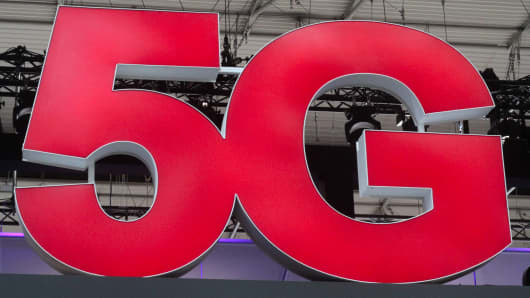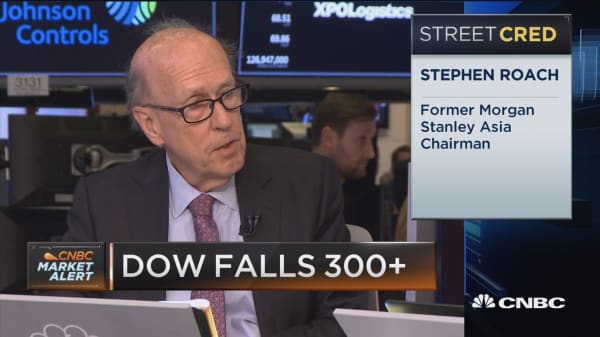 The United States is pushing its allies to shut out Chinese tech giant Huawei's 5G networks due to national security concerns as the high-speed technology is set to play a critical role in the 21st century, a Eurasia Group expert said Tuesday.
The United States is pushing its allies to shut out Chinese tech giant Huawei's 5G networks due to national security concerns as the high-speed technology is set to play a critical role in the 21st century, a Eurasia Group expert said Tuesday.
Japan, Washington's close ally, will reportedly stop buying Huawei and ZTE network equipment for government offices and its military forces. Huawei has also been excluded from providing technology for the core 5G network that's being developed by U.K. telecoms firm BT.
Australia and New Zealand have also banned Huawei from participating in building their 5G networks — the next generation of mobile technology expected to revolutionize the interaction of internet-connected devices and appliances.
"This is part of a concerted strategy on the part of the United States to pressure allies, western countries and other like-minded allies not to include Chinese 5G equipment in their next generation networks," Kevin Allison, director of geo-technology at risk consultancy Eurasia Group, said Tuesday on CNBC's "Squawk Box."
Allison said that 5G technology is a "geopolitically consequential network upgrade" that represents a new level of innovation with major implications for a number of sectors including driverless vehicles, smart cities, advanced factories and artificial intelligence.
Such technologies "are really going to set the tone for the rest of the 21st century," he said, citing intense competition in areas such as the race for faster economic growth and stronger militaries.
The U.S. approach to box in Huawei is also a factor in its broader conflict with China over trade, Allison said.
Complicating the tariff conflict is Canada's arrest on Dec. 1 of Meng Wanzhou, Huawei's chief financial officer and daughter of company founder Ren Zhengfei, for alleged violation of U.S. sanctions against Iran. The U.S. is seeking her extradition and hearings are ongoing in Vancouver.
'Strictly complies'
China has strongly criticized the treatment of Meng and summoned the ambassadors of both Canada and the U.S. to complain.
Huawei, in a letter to its suppliers released late Thursday, said that it "strictly complies with all applicable laws and regulations in our global business operations" and added it "is not aware of any wrongdoing (by Meng)."
Allison predicted that the U.S. effort will result in "a split between a 5G network that is built with Chinese technology in some countries, and networks that are built to be free of Chinese technology in other countries."
That echoes the view of former Google top executive Eric Schmidt who said earlier this year that within the next decade there will be two separate internets: one led by the U.S. and the other by China.
"Certainly there's no more important role for a government than to look after national security but it's also important to pursue these commercial issues in the context of a rules based environment."-Josh Kallmer, Information Technology Industry Council
Key vendors in the 5G network business besides Huawei and fellow Chinese company ZTE include Sweden's Ericsson, Finland's Nokia, South Korea's Samsung, Japan's NEC and Fujitsu, as well as Intel, Qualcomm and Cisco of the United States, according to a Eurasia Group report in November.
Josh Kallmer, executive vice president for policy at the Information Technology Industry Council, expressed hope for a system of rules whereby questions of security and competition can be balanced.
"Certainly there's no more important role for a government than to look after national security but it's also important to pursue these commercial issues in the context of a rules based environment," Kallmer told CNBC.
"We're confident that if both China and the United States and other markets commit to that, then companies will be able to compete on the merits that everybody will have a fair shake at succeeding — and that's the outcome we should all prefer," he said.

No comments:
Post a Comment